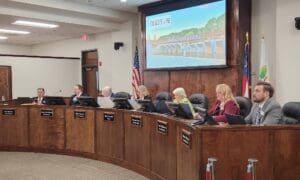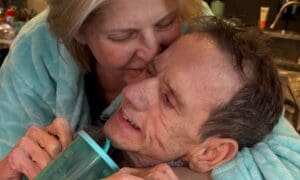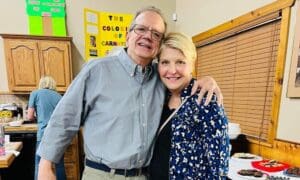When Peachtree City resident Scott Rowland was serving in the Peace Corps in Guatemala, one of the biggest days of the week was when the previous Sunday’s New York Times would arrive. It was a way to see what was going on in the rest of the world and an article in one particular issue led to Rowland going on arguably the biggest adventure of his life. It was an adventure that led him to the end of the world.
“The story was about a job fair in Denver for jobs in Antarctica,” Rowland said. “I missed the deadline for that year, but I kept the article and went the next year. One of my goals was to reach all seven continents by the time I was 30 and this was the only way I was getting to Antarctica.”
One would think that not too many people would like to go to Antarctica and work for five months, but it was estimated that there were close to 5,000 people applying for each job available, jobs that ranged from everything from dishwasher and janitor to human resources or electrician.
Rowland applied for a number of different positions and got a job in transportation. He credits a bit of limousine experience and his time in the Peace Corps for getting the job.
“Like a lot of jobs, you have to know somebody and it turned out that the girl interviewing me had a sister who was also in the Peace Corps,” Rowland explained. After undergoing a battery of medical and psychological exams, Rowland was accepted for a job that would last from October to February at McMurdo Station in Antarctica.
October to February is the summer season in Antarctica and there is almost near constant daylight during that time. It was just one of the things that Rowland had to get used to, in addition to Happy Camper Survival School that would prepare him if he were to get caught in a storm while driving off and around the base.
One of the elements of survival school was digging out a shelter in the snow and spending the night out there. Temperatures were around 20 degrees below or more and space was incredibly tight.
While the atmosphere and temperatures were incredibly foreign, McMurdo Station had a lot of the trappings of home. There was a video store, a bowling alley, a coffee shop, two bars and more.
“It had almost everything you could want,” Rowland said. There were also classes, recreation leagues, a 5K race and a marathon. “I was part of the rugby league that played the team from the nearby New Zealand station and ran my first 5K ever, layered in clothes and wearing hiking boots.”
Five months in Antarctica would be special any time, but what made Rowland’s time down there extra special was that director Werner Herzog was down there at the same time making the documentary, “Encounters at the End of the World.”
“We were in Happy Camper Survival School together and because I was ‘Shuttle Scott,’ I was often asked to take him around to the different places he needed to go.”
Sometimes that meant to an area where penguin research was occurring and other times it meant where scientists were studying neutrinos or volcanoes. Rowland got to drive out to a pier made of ice and also saw the discovery of some of the Shackelton expedition. He even volunteered to give tours around the area.
“It was basically offered as a community service to people on base that were recommended by their superiors,” Rowland said.
Rowland stated that he had never been around so many smart people and the research that was occurring in and around McMurdo Station was fascinating. There were meteorite hunters, paleontologists and divers that were identifying new creatures in the ocean below the ice. Every Sunday, after church (a beautiful church had been built at McMurdo in the 1950s) and brunch, there were science lectures open to all.
Staying in Antarctica from October to February meant celebrating several holidays down there. There was a Halloween party, a Thanksgiving dinner with all the trimmings, Christmas and a New Year’s party with the Kiwis at the New Zealand base. In addition, each department was responsible for throwing at least one party during their time there, so there was always something going on.
“I could’ve gone five more summers and still not done everything,” Rowland said.
Rowland gives a lot of credit to his parents for supporting him in his decision to make the trip to Antarctica, as well as his other adventures.
When he returned, his father told him it was time to settle down and get a job, but Rowland said, “Not yet,” and traveled to Peru, knocking out the final continent he needed to travel in to reach all seven continents by his 30th birthday. Upon returning, he got a job with Peachtree Planning of Tyrone.
“Their mission statement is to help people, make money and have fun,” Rowland said. “That’s my mission statement.”
Recently, because of a backlog, Rowland received his Antarctica Service Medal. The medal used to go to only military personnel but has since been awarded to civilians that provide support and meet the requirements. It is just one piece that serves as a reminder of his time down there.
“I think about it every time the temperature is too hot,” Rowland joked. He has been thinking about Antarctica a lot lately and those thoughts, the pictures and Herzog’s documentary, as well as the tons of memories of his five months at the “end of the world,” keep him cool.











Leave a Comment
You must be logged in to post a comment.